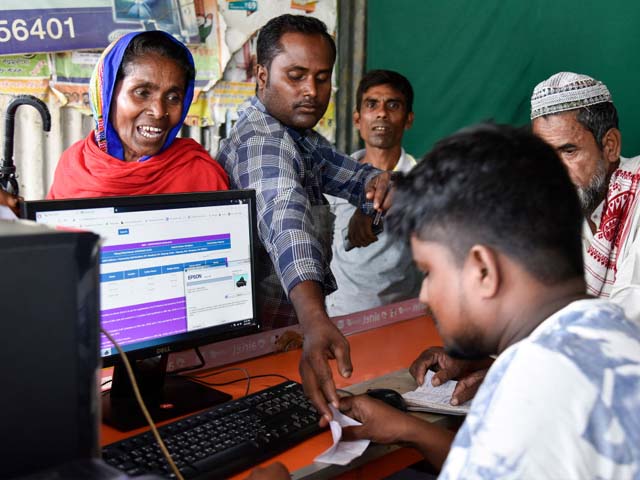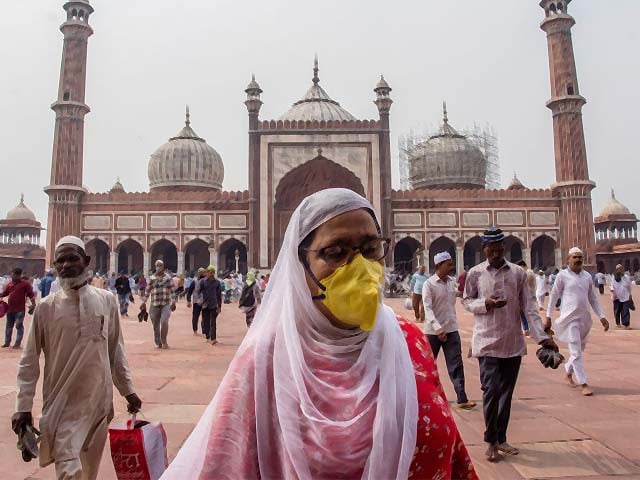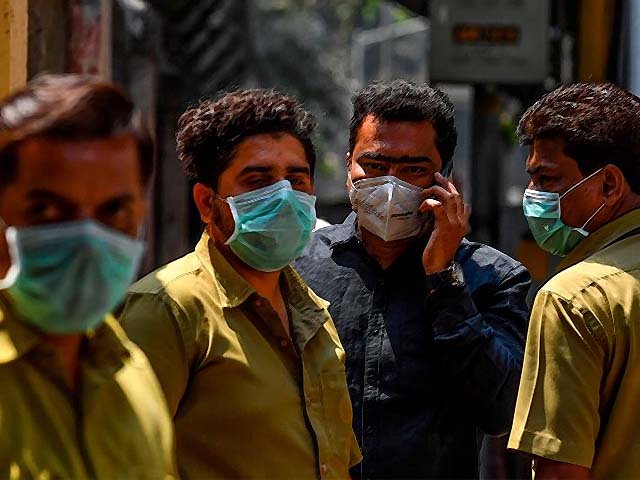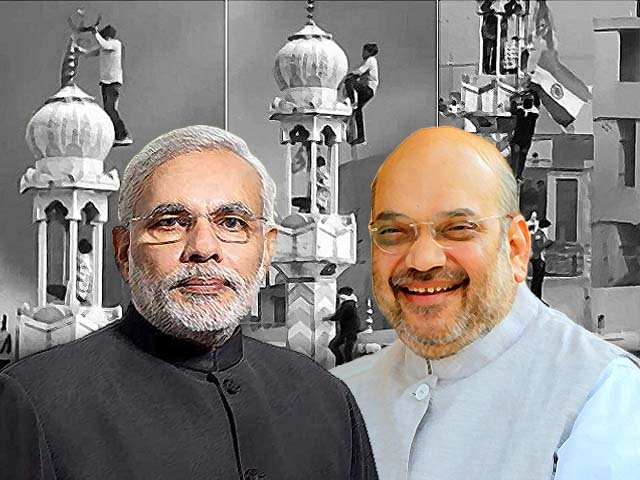
How the NRC further widens the religious fault lines in India
What happens when a myth comes face to face with a harsh reality? A nation which has been fed a myth feels betrayed when that lie is finally exposed. The National Register of Citizens (NRC), an exercise intended to compile data about the citizens of the Indian state of Assam, has been chasing a myth. The original aim of the NRC was to determine which individuals who settled down in Assam after 1971 are illegal immigrants, regardless of their religion.
But with time, the NRC became an exercise aimed at weeding out illegal Muslim immigrants who had come in from Bangladesh. For generations, people across India have been fed the narrative that the majority of Muslims in Assam, who constitute 34% of the total population of Assam’s 32 million people, are illegal residents who have come from Bangladesh and settled down in the bordering state. As a result, many of the Muslims in the region have often been treated as outsiders.
Almost 2 million people, primarily Muslims, could be rendered stateless in the Indian state of Assam after they were excluded from a newly released citizens lists.
— Al Jazeera English (@AJEnglish) September 2, 2019
Read more: https://t.co/Q9c2yLgwHg pic.twitter.com/0bdAQOsTTu
We are concerned about the publication of a National Register of Citizens in India's Assam state that may put up to 1.9 million people at risk of statelessness. https://t.co/hb5P4U9xWD
— UNHCR, the UN Refugee Agency (@Refugees) September 1, 2019
For the Muslim minority, the NRC was a double-edged sword. On the one hand, it was an opportunity to prove their credentials as an Indian, while on the other, many Muslims feared they would be targeted through the NRC and declared to be stateless citizens. On Saturday, when the NRC was finally released after five years of polarising debate, almost 2 million people were declared stateless. However, this number, for the members of the Bharatiya Janata Party (BJP), was too little to believe. In order to bolster claims about the threat posed by the Bangladeshi immigrants living in Assam, the Indian government had also declared that the more than 4 million Bangladeshis in Assam have led to the region undergoing a demographic change. However, Bangladesh has always denied the claims that there has been such a huge influx of people from Bangladesh in to India.
Ever since 1947, the issue of illegal migration has been vexing Assam. That was why, in 1951, the first NRC was drawn up to determine who were the documented residents of Assam. But the first NRC was not controversial. In the 1980s, a violent movement led by students took place in Assam with the aim of weeding out illegal Bangladeshis migrant. The student agitation came to an end in 1985 when the Indian government signed the Assam Accord and, amongst other things, agreed to set up a new NRC in order to upgrade the previous one. In 2014, the BJP came to power in New Delhi and it also captured power in Assam a year later. In fact, many Bengali Hindus voted for the BJP in the hope that the party would help them gain their citizenship. It is clear that the BJP leadership expedited this process in Assam.
Muslims are being targeted all over India, not just Kashmir.
— Arjun Sethi (@arjunsethi81) September 1, 2019
In Assam this weekend, 1.9 million people were rendered stateless.
India says they’re undocumented, but it’s really just a witch-hunt to target & expel Muslims & other minorities in the state.https://t.co/ztaK1esVA5
India is smearing Muslim migrants who have lived lawfully in Assam for decades as "Bengalis," which is what Myanmar called Rohingya Muslims right before they began slaughtering them.
— CJ Werleman (@cjwerleman) August 31, 2019
Those who have been left out of the NRC have the option of appealing to the Foreigners’ Tribunal within 120 days and most of them will do that. But the tragedy is that the NRC, which was supposed to bring a closure to the debate about citizenship in Assam, has only exacerbated divisions in the region. The question is, what happens when the process finally comes to a close after the finalisation of the missing names? More than a million people will be rendered stateless. Where will they go? This is made all the more convoluted since India does not have any agreement with Bangladesh about the repatriation of refugees. As a result, many individuals named in the NRC who have been living in India for generations will have no country to go to. The travesty of the list is such that in some cases, a mother has been declared to be a foreigner while her children are Indian. Does the BJP intend to tear families apart?
India has a rich history of sheltering prosecuted and hapless people from different parts of the region and world. It adds to India’s moral weight to accept such people as their own and give them space to grow and contribute towards society. But it is clear that India is now straying from those lofty ideals.
The problem right now is that the government and the media are looking at the NRC issue from a communal perspective. The BJP talks about saving Bengali Hindus because for the BJP it’s not a humanitarian crisis, but a ploy to further their divisive politics and widen India’s fault lines. If we don’t follow a humanitarian policy vis-a-vis stateless citizens, then the country is going to witness a new humanitarian crisis. What kind of society would we be if we keep thousands of people in detention centres? The NRC was the result of a popular movement in Assam, but now that movement itself looks to have been born out of a misplaced fear. The NRC is no longer about citizenship, it’s a test for India to reclaim its civilizational values and secular spirit.




COMMENTS
Comments are moderated and generally will be posted if they are on-topic and not abusive.
For more information, please see our Comments FAQ